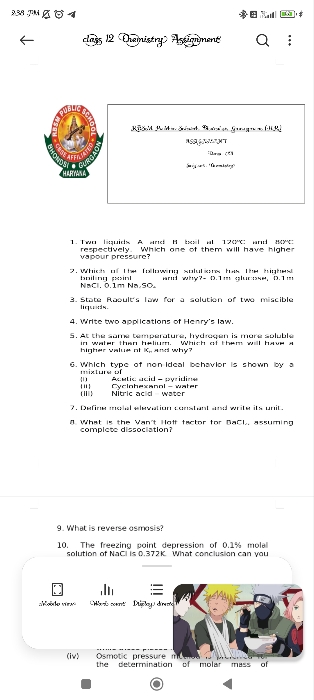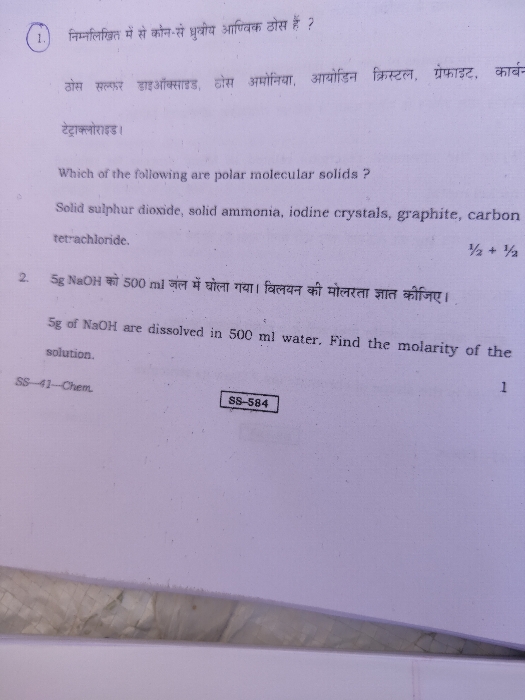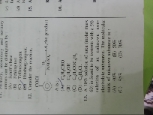CBSE Class 12-science Answered
Boiling point of a liquid gets elevated on adding non volatile solute.Explain
Asked by j4jaigupta1998 | 09 Jun, 2015, 09:55: AM
Boiling-point elevation is a colligative property. This states that a solution will have a higher boiling point than that of a pure solvent.
The boiling point represents the temperature at which the liquid molecules possess enough heat energy to overcome the various intermolecular attractions that bind the molecules into the liquid.
When a solute is added to a solvent, the vapor pressure of the solvent (above the resulting solution) is less than the vapor pressure above the pure solvent. The boiling point of a solution, then, will be greater than the boiling point of the pure solvent because the solution (which has a lower vapor pressure)will need to be heated to a higher temperature in order for the vapor pressure to become equal to the external pressure (i.e., the boiling point).
Answered by Arvind Diwale | 09 Jun, 2015, 02:43: PM
Concept Videos
CBSE 12-science - Chemistry
Asked by chetanrakshit06 | 05 May, 2024, 02:51: PM
CBSE 12-science - Chemistry
Asked by hannamaryphilip | 17 Apr, 2024, 11:20: PM
CBSE 12-science - Chemistry
Asked by sameerteli003 | 08 Apr, 2024, 11:48: PM
CBSE 12-science - Chemistry
Asked by rashmij34 | 27 Feb, 2024, 04:42: PM
CBSE 12-science - Chemistry
Asked by sagarmishra | 27 Feb, 2024, 04:01: PM
CBSE 12-science - Chemistry
Asked by kalandi.charan.407 | 08 Feb, 2024, 01:42: PM
CBSE 12-science - Chemistry
Asked by premkhare2006 | 24 Jan, 2024, 09:50: AM
CBSE 12-science - Chemistry
Asked by saritanohar22 | 13 Jan, 2024, 01:25: PM
CBSE 12-science - Chemistry
Asked by kaushikmisty07 | 31 Dec, 2023, 11:42: AM
CBSE 12-science - Chemistry
Asked by kamlesh.kumar.malee | 20 Dec, 2023, 06:59: AM









